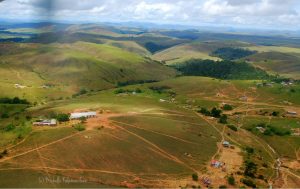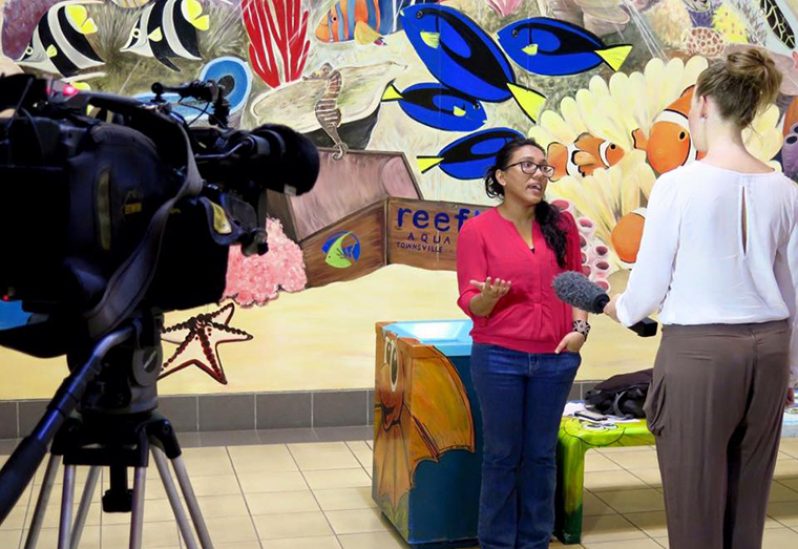…says Guyanese scientist
By Rehana Ahamad
LAST year can safely be regarded as a cataclysmic year ‘plagued with a plague’ and other extraordinary destructions– from the devastating Australia wildfires that killed billions of animals and destroyed millions of hectares of forest, to the unprecedented floods, droughts, and severe temperature fluctuations experienced across the world.
Guyanese Scientist, Dr. Michelle Kalamandeen, believes that the environmental tragedies of 2020 have inevitably created the deadly monster that is the novel coronavirus.
The biologist expressed confidence that the emergence of the COVID-19 pandemic is a consequence of global administrations ignoring, and by extension, failing to address the critical connection between the environment and human health.

“COVID-19 has demonstrated how fragile our national and global systems are, exposing the existing and persistent inequalities of our healthcare and economy,” Dr. Kalamandeen told the Sunday Chronicle.
“At the bottom of this pyramid is our environment which connects our health and our livelihoods,” she added.
In bringing further clarity to her point, Dr. Kalamandeen indicated that three out of every four new infectious diseases in people come from animals.
“More specifically, from our wildlife and from the livestock we keep in ever-increasing numbers,” she added.
Dr. Kalamandeen said that even though climate change continues at its own pace, the changes effected by humans are making matters far worse.
“Carbon dioxide emitted from our everyday consumption of fossil fuel is shifting climate zones,” she posited.
The scientist explained that “if an area becomes too hot or too cold for certain wildlife, they will migrate to new places, where they interact with other animals that they have never encountered before.
“It also means that humans increasingly are sharing the same spaces and vying for the same food, thereby increasing the risk of transmission of diseases from animals to humans,” Dr Kalamandeen reasoned.
She is adamant that the current COVID-19 pandemic is yet another warning shot of the consequences of ignoring the connections between the environment and human health.
“There is no choice in addressing the health impact, the economy, the social fallout from this pandemic and the environment. It is all connected,” Dr Kalamandeen asserted.
The biologist believes that the advent of the coronavirus is a wake-up call, especially for an eco-paradise such as Guyana, and most especially in the context of an emerging oil and gas industry.
“The recovery from the COVID-19 crisis must lead to more equal, inclusive and sustainable societies that are stronger and more resilient – one that ensures robust climate action, a reduction of fossil fuels and developing a sustainable standing-forest economy,” Dr Kalamandeen maintained.
“A healthy environment means healthy people and a healthy economy,” she added.
Meanwhile, during her address at the launch of this year’s Human Development Report, Prime Minister of Barbados, Mia Mottley, also stressed the connection between people and planet, also indicating her belief that human activity has created “this pandemic of biblical proportions”.
“While scientists continue to debate over if, and when we can be considered to have entered a new geological era – the Anthropocene, where human activity has the dominant impact on our earth’s ecosystems, we do not need to wait thousands of years for definitional proof to emerge in rock formations or fossils…we know it,” Mottley emphasised.
She believes that the current generation remains in an ideal position to reverse and mend some of the human-inspired damages done to the environment.
“If we seem surprised at the ferocity of this convergence of nature’s forces, we really should not be. It is not as if scientists have not warned us in a myriad of ways about the catastrophic consequences of indiscriminate human action on our natural environment…an environment that remains vital to the support of all forms of life on the planet,” Mottely said.
She declared, “We have reached a transformational moment, where moral and ethical leadership is most needed.”
The Barbadian Prime Minister believes that if the world heeds 2020 as a wake-up call, and avoid slipping back into complacency, global leaders, supported by scientists, can be able to strike a reasonable balance between people and the planet.
“The time is now,” Mottley maintained.



.jpg)








